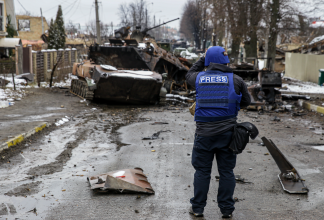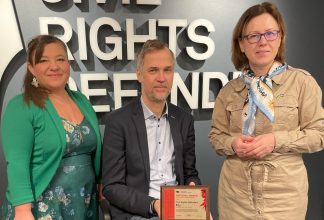First European Court Judgment on Kadyrov’s Chechnya
On 22 January the European Court of Human Rights handed down the first judgement of a case stemming from Chechnya under Ramzan Kadyrov’s rule. The case regards Tamerlan Suleymanov, who was abducted in the southern Russian republic in spring 2011 by alleged law enforcement officers. It is also the first case in the context of abduction in the region, where the court instructed the Russian Government to take concrete measures to ensure the victim’s security.
“We welcome the fact that the European Court has handed down a first judgement concerning a recent case where Ramzan Kadyrov’s special forces commit the abuses. This shows that grave human rights violations and impunity in Chechnya has not ended with the armed conflict,” said Joanna Kurosz Eurasia Programme Director, Civil Rights Defenders.
For the first time, the European Court used Rule 39 in a case of abduction stemming from the North Caucasus. According to Rule 39 the Court may indicate a provisional measure to a party, and in this case the Russian Government was instructed to take concrete measures to ensure Tamerlan Suleymanov’s security.
“The use of Rule 39 sets an important precedent. In cases of abductions these measures can save lives. The cases in the European Court can take five or more years to process, which means that there is usually no longer any hope to find the abducted person at the time of the verdict,” said Joanna Kurosz.
The court ruled that Russia has violated Article 3 of the European Convention on Human Rights – “inhuman or degrading treatment or punishment” by not providing a proper and effective investigation. The court noted numerous violations and irregularities in the actions of the investigative authorities, such as constant unreasonable delays into the investigation; superficial interrogations of witnesses and police officers; destruction of evidence, such as video records of the abduction; ignorance of available and collected facts and proof; and the fact that the investigation had been conducted by law enforcement officers who were allegedly involved into the crime. The judgement did not, however, take into consideration the evidence of criminal involvement of law enforcement bodies.
“We regret that the European Court didn`t take into consideration the involvement of security forces in the kidnapping, despite evidence from a number of human rights defenders, NGO’s and media. Nevertheless the judgment will help to re-open the case in question and it can also be applied to similar cases in the future, which is of great significance,” said Anton Ryzhov, head of JMG’s current mission to Chechnya.
The Joint Mobile Group initially processed the case “Suleymanov v Russia” on the domestic level. The Group has been monitoring and investigating grave human rights violations in Chechnya since 2009, when the security situation of human rights defenders seriously deteriorated and it became too dangerous for local Chechen organisations to investigate into such crimes. Civil Rights Defenders has been supporting the Joint Mobile Group from the beginning. The case was later taken over by Memorial, another of Civil Rights Defenders long-term partners.
Impunity for grave human rights violations committed by law enforcement agents and the military is widespread in the North Caucasus. With the backing of Russia’s President Vladimir Putin, Ramzan Kadyrov became the president of Chechnya in 2007 and has since then turned the republic into a society characterised by fear and complete absence of rule of law. On the surface Chechnya has stabilised since the armed conflicts that took place in the republic 1994-96 and from 1999. But under the rule of Kadyrov, Chechnya has developed from a war zone into a local military dictatorship.


